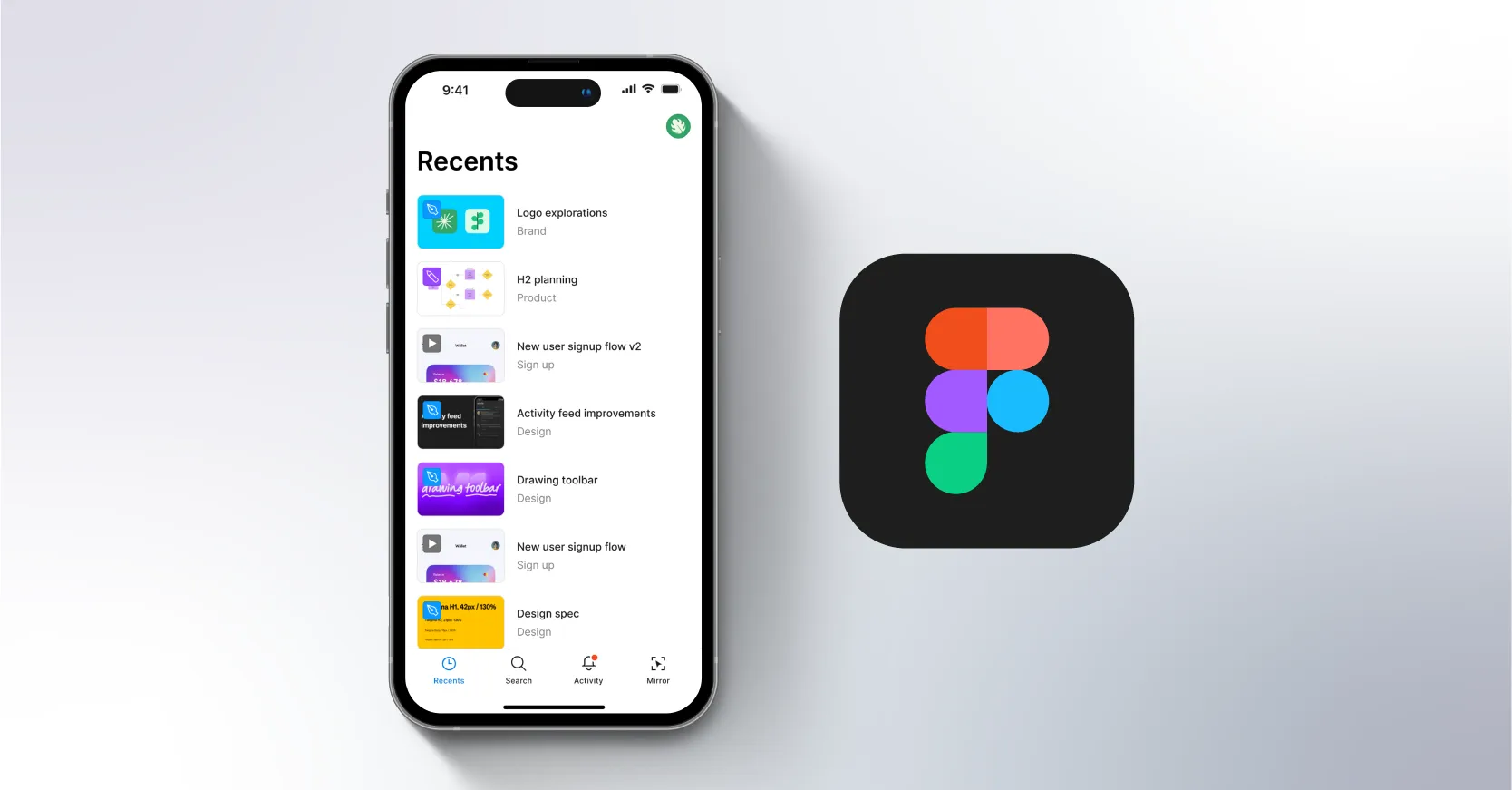The Case for Mobile App Automation Testing Tools
The struggle is all too real: the app is about to be released, and you’re staring down a wall of devices, OS versions, and brittle scripts. With over 24,000 Android device types and countless iPhone models, device fragmentation makes full coverage nearly impossible.
Manual testing feels like a losing battle: slow, inefficient and impossible to scale in continuous delivery. Debugging is further slowed by observability gaps: incomplete insights, disorganized test histories, and limited visibility into user sessions. This is exactly the kind of challenge Luciq tackles with agentic mobile observability, providing automated context capture and proactive resolution so teams spend less time fixing and chasing issues, and more time building and shipping stable apps.
On top of this, infrastructure costs for device farms are prohibitive, and post‑release fixes are delayed by marketplace approvals and slow user updates. Developers echo these frustrations across forums, citing brittle automation, poor coverage, and endless debugging loops; many are calling for smarter, more autonomous solutions, tools that not only execute tests but also surface root causes, accelerate fixes, and improve overall stability.
That’s where modern mobile app automation testing tools come in. Today’s platforms go beyond execution, offering mobile app UX testing, mobile app user experience testing, and advanced mobile debugging tools that surface actionable insights. This guide highlights the best mobile app testing tools.
Mobile App Testing Tools: A Quick Overview
The table below offers a quick snapshot of mobile app automation testing tools, before we dive into detailed profiles of each tool.
Detailed Profiles of Mobile App Automation Testing Tools
Below you’ll find an in‑depth look at the leading mobile app automation testing tools. Each profile highlights features, pricing, and use cases. To make the landscape easier to navigate, the tools have been categorized into five groups: Low‑code/no‑code Platforms, Agentic AI Tools, Cloud Device Farms, Native Testing Frameworks, and Visual Validation Solutions.
Alongside these categories, we also spotlight Luciq, the first and leading Agentic Mobile Observability platform. Unlike traditional testing tools, Luciq defines a new category that goes beyond execution and debugging, autonomously detecting issues, generating fixes, and transforming mobile app maintenance into a solved problem.
Low‑Code / No‑Code Platforms
Tools like Mabl, FlutterFlow AI, TestComplete, and Ranorex simplify test creation with voice guidance, drag‑and‑drop interfaces, or record‑and‑playback scripting. These platforms make automation accessible to QA teams without deep coding expertise, enabling faster mobile app UX testing and regression coverage.
Mabl
Best for: accessible automation in CI/CD pipelines.
Mabl is a low‑code mobile app automation testing tool that simplifies test creation with voice guidance and AI‑assisted regression testing. It’s designed for QA teams who need scalable mobile app UX testing without deep coding expertise, making it a strong fit for continuous delivery workflows.

Key Features:
- Voice‑guided test creation
- AI‑assisted regression testing
- Team‑wide test sharing and reporting
- Cross‑platform Android/iOS support
Possible Use Cases:
- Automating regression tests in CI/CD pipelines
- Scaling mobile app user experience testing across devices
- Empowering QA teams with low‑code workflows
- Pay once and share across all capabilities (web, mobile, API, accessibility, performance, cross‑browser). Unlimited local test runs and cloud concurrency at no extra cost.
- Tailored pricing for both small and large teams, adaptable to evolving quality strategies, and designed to foster collaboration across applications.
FlutterFlow AI
Best for: design‑driven teams combining prototyping and testing.
FlutterFlow AI blends app prototyping with automated test generation, enabling teams to build and validate apps faster. It’s especially useful for mobile app UX testing during early design phases, offering integrated mobile debugging tools alongside low‑code workflows.

Key Features:
- Visual prototyping with AI assistance
- Prompt‑to‑component generation
- Integrated test creation
- Cross‑platform Android/iOS support
Possible Use Cases:
- Rapid prototyping with built‑in testing
- Design‑driven mobile app user experience testing
- Simplified debugging during early builds
- Tiered plans from Free to Business: Starting at $0/month and scaling up to $60/month per seat, with features like code export, app store deployment, GitHub integration, and team collaboration.
- Enterprise options available: Custom pricing upon request
TestComplete (SmartBear)
Best for: enterprise teams needing record‑and‑playback automation.
TestComplete is a commercial mobile app automation testing tool that supports record‑and‑playback plus scripting. It’s optimized for enterprise QA teams who need robust mobile app UX testing across mobile, web, and desktop environments.

Key Features:
- Record‑and‑playback automation
- Scripting for advanced workflows
- Cross‑platform support (Android, iOS, Web)
- Enterprise reporting dashboards
Possible Use Cases:
- Enterprise‑scale mobile app user experience testing
- Automating repetitive test cases
- Cross‑platform QA coverage
- Commercial Tiered Licensing: TestComplete offers customizable plans based on platform coverage (desktop, web, mobile), number of users, and license type (floating vs. node-locked). A 14-day trial is available for evaluation
Ranorex
Best for: enterprise QA teams managing multi‑platform testing.
Ranorex is an enterprise‑grade automation platform covering mobile, desktop, and web. It’s widely used for mobile app UX testing and mobile debugging tools, offering robust reporting and collaboration features.

Key Features:
- Cross‑platform automation (Android, iOS, Desktop)
- Enterprise reporting dashboards
- Scripted and low‑code workflows
- Strong integration with CI/CD pipelines
Possible Use Cases:
- Enterprise QA teams needing unified automation
- Large‑scale mobile app user experience testing
- Debugging across multiple platforms
- Quote-based Licensing: options include Studio, Runtime, and Floating Licenses for physical and virtual machines.
Agentic AI Tools
Platforms such as GPT Driver and GitHub Copilot X emphasize autonomous workflows, inline debugging, and observability‑first design. They reduce manual overhead and accelerate fixes, complementing traditional frameworks with AI‑native mobile debugging tools.
GPT Driver
Best for: AI‑native test creation and debugging.
GPT Driver is an agentic mobile app automation testing tool offered by MobileBoost; GPT Driver uses prompt‑based workflows to generate tests and integrate directly with native SDKs. It reduces manual overhead and accelerates fixes, making it a strong fit for teams seeking autonomous mobile debugging tools.

Key Features:
- Prompt‑based test creation with native SDK integration
- AI‑native debugging workflows and CI/CD pipeline compatibility
- Visual testing for native components, Web Views, and cross‑platform apps (iOS, Android, Web)
- API call support before, during, and after tests
- Element‑independent testing (Flutter, React Native, etc.) and deep link validation across apps/system screens
- Test reuse, import/export into popular frameworks, and execution on both virtual and physical devices
- Multi‑language testing across 180+ UI languages with AI‑native handling of unexpected UI changes
Possible Use Cases:
- Automating test creation with natural language prompts to reduce manual QA overhead
- Cross‑platform regression testing and debugging without brittle element IDs
- Integrating autonomous testing into CI/CD pipelines, including localized tests across multiple languages
- Enterprise Plans: Available upon request, with tailored support and scalability options.
GitHub Copilot X
Best for: accelerating test script creation with AI.
GitHub Copilot X is an AI assistant that complements mobile app automation testing tools by generating test scripts, documentation, and PR automation. While not a dedicated testing platform, it’s widely adopted by developers to speed up mobile app UX testing workflows and support mobile debugging tools in CI/CD environments.

Key Features:
- GPT‑4 powered code and test case suggestions
- Automated documentation, PR reviews, and inline debugging workflows
- IDE integration with chat and voice for developer/QA collaboration
- Cross‑platform support (React Native, Flutter, Kotlin)
- Automated unit, regression, and API test generation with framework integration
- TDD workflow acceleration and reusable test scripts for mobile pipelines
Possible Use Cases:
- Accelerating test script creation and regression coverage in mobile apps
- Supporting QA engineers with inline AI suggestions for debugging and UX validation
- Enhancing developer productivity by integrating autonomous testing into CI/CD pipelines
Pricing: GitHub Copilot X offers a Free tier, a Team plan at $4/month per user, and an Enterprise plan at $21/month per user, each with increasing CI/CD minutes, Codespaces capacity, and security features. GitHub Copilot and Copilot Chat are available as add-ons across tiers.
Cloud Device Farms
Services like BrowserStack App Live, Firebase Test Lab, Maestro, Perfecto and Sauce Labs provide scalable access to thousands of real devices. These platforms enable cross‑platform mobile app user experience testing without heavy infrastructure investment, making them essential for teams tackling device fragmentation.
BrowserStack (App Live)
Best for: real device testing and automation at scale.
BrowserStack offers a suite of mobile testing products designed for manual and automated workflows across thousands of real devices. It’s widely used for mobile app automation testing, mobile app UX testing, and mobile debugging tools, especially in enterprise CI/CD environments.

Relevant Products for App Testing:
- App Live: Manual testing on real iOS and Android devices
- App Automate: Automated testing grid for mobile apps
- App Accessibility Testing: WCAG and ADA compliance testing for mobile interfaces
- Test Management: Centralized test planning and execution
- Test Reporting & Analytics: Unified dashboards and insights across test runs
Key Features:
- Manual and automated testing across 2,000+ real iOS and Android devices
- Cross‑platform coverage with biometric, 5G, and accessibility testing support
- Integration with Appium, Espresso, XCUITest, and CI/CD pipelines
- Cloud‑based collaboration with visual logs, crash reports, and network traffic capture
Possible Use Cases:
- Running automated regression tests across fragmented real devices and hybrid app environments
- Debugging mobile app UX issues with session recordings, logs, and accessibility validation
- Managing test plans and reporting across distributed QA teams with cloud‑based collaboration
- Individual Plan: $39/month (billed annually), single user, access to 1,000+ devices
- Team Plan: $150/month (billed annually), 5 users, access to 2,000+ devices and unlimited testing
- Team Pro Plan: $249/month (billed annually), 5 users, advanced collaboration, unlimited parallel test runs and automation
- Enterprise Plan: Custom pricing, tailored for large-scale teams with advanced security, compliance, and support
Firebase Test Lab
Best for: scalable Android app testing with flexible quotas and cloud integration.
Firebase Test Lab provides cloud-based infrastructure for testing Android apps across virtual and physical devices. It’s widely used for mobile app automation testing, mobile debugging tools, and CI/CD workflows within the Google Cloud ecosystem.

Key Features:
- Automated and manual testing on virtual and physical Android devices
- Android Device Streaming and CI/CD pipeline integration
- Real-time error reporting and test result management via Cloud APIs
- Deep link testing, ML‑driven UI exploration, and smart scripting automation
- Native support for the Android ecosystem with full Google Cloud integration
Possible Use Cases:
- Automated UI exploration
- Running automated regression tests across Android OS versions and device types
- Debugging app crashes and performance issues with real-time logs and screenshots
- Integrating mobile testing into CI/CD pipelines using Google Cloud APIs
- Scaling test coverage with virtual devices and Android Device Streaming
- Spark Plan (Free):
- Up to 15 test runs/day (10 virtual, 5 physical)
- 30 minutes/day on physical devices, 60 minutes/day on virtual devices
- Android Device Streaming: 30 minutes/month per project
- Blaze Plan (Pay-as-you-go):
- $5/hour for physical devices, $1/hour for virtual devices (billed per minute)
- Includes same no-cost limits as Spark, with scalable quotas based on usage
- Android Device Streaming: 30 free minutes/month, then $0.15/minute
*Charges apply to actual test execution time, and may vary according to Google Cloud usage.
Perfecto
Best for: enterprise-grade mobile testing with cloud scalability.
Perfecto offers a cloud-based platform for mobile and web testing, designed to support large teams with high concurrency, advanced automation, and AI-enhanced reporting. It’s widely used for mobile app automation testing, mobile app UX testing, and mobile debugging tools in regulated and performance-critical environments.

Key Features:
- Manual and scripted automation testing on real devices via public cloud
- Cross-browser and cross-platform coverage (Android, iOS, Web)
- AI-enhanced dashboards, reporting, and test analytics
- Parallel device access and CI/CD pipeline integration
- VoiceOver and TalkBack accessibility testing
- Quantum support for BDD-style automation
- Dedicated VMs for secure browser testing
Possible Use Cases:
- Running automated regression tests across mobile and web platforms
- Debugging mobile app UX issues with AI-enhanced reporting and accessibility validation
- Scaling test execution across distributed teams with secure cloud infrastructure
- Starter Plan: Free, 240 minutes/month, manual testing on real devices
- Basic Plan: $83/month, 500 minutes/month, public cloud access, automation support
- Pro Plan: $125/month, 1,000+ minutes/month, CI/CD integration, advanced reporting
- Enterprise Plan: Custom pricing, dedicated environments, custom logic, and premium support.
SauceLabs
Best for: secure, scalable mobile testing across emulators, simulators, and real devices.
SauceLabs offers a unified platform for manual and automated testing across thousands of browser/OS combinations and mobile devices. It’s widely used for mobile app automation testing, mobile app UX testing, and mobile debugging tools, especially in enterprise-grade environments requiring security, scalability, and CI/CD integration.

Key Features:
- Manual and automated testing on emulators, simulators, and real iOS/Android devices
- Cross-browser and cross-platform coverage with secure, single-use VMs
- CI/CD integration and parallel test execution
- Screenshots, video recordings, and error reporting with Backtrace
- Local testing via Sauce Connect
- API and mobile beta testing support
- Enterprise-grade tunneling, team management, and version control integrations
Possible Use Cases:
- Running automated regression tests across mobile devices and browser/OS combinations
- Debugging mobile app UX issues with video logs and error reporting
- Validating mobile app performance and accessibility in secure environments
- Collaborating across distributed QA teams with unlimited users and enterprise dashboards
- Live Testing:
- $49/month (billed annually) or $59/month (monthly)
- Manual testing on 3,000+ desktop browsers and real iOS/Android devices
- Virtual Cloud:
- $149/month (billed annually) or $179/month (monthly)
- Automated + manual testing on virtual desktop/mobile environments
- Real Device Cloud:
- $199/month (billed annually) or $239/month (monthly)
- Automated + manual testing on thousands of real iOS/Android devices
- Enterprise:
- Custom pricing: includes unlimited testing minutes, SSO, team management, and premium support
*Pricing for 1 parallel test.
Native Testing Frameworks
Industry standards such as Appium, XCUITest, Maestro, Espresso, and Detox integrate tightly with Android and iOS ecosystems. They offer robust automation options for mobile app UX testing, though they often require skilled maintenance and deeper developer expertise.
Appium
Best for: open‑source cross‑platform automation.
Appium is the industry standard mobile app automation testing tool, offering AI‑enhanced element locators and cross‑platform support. It’s widely used for mobile app UX testing across Android and iOS.

Key Features:
- Open‑source framework
- AI‑enhanced element locators
- Cross‑platform Android/iOS support
- Large community adoption
Possible Use Cases:
- Cross‑platform regression testing
- Open‑source QA workflows
- Debugging brittle scripts
Pricing: Free, open‑source.
XCUITest
Best for: native iOS testing in Xcode.
XCUITest is Apple’s native mobile app automation testing tool, integrated into Xcode. It’s ideal for mobile app UX testing with accessibility and SwiftUI support.

Key Features:
- Native iOS UI testing
- SwiftUI and accessibility support
- Xcode integration
- Fast execution
Possible Use Cases:
- iOS‑focused QA teams
- Accessibility validation
- Debugging iOS apps
Pricing: Free, included in Xcode.
Maestro
Best for: declarative mobile UI testing with local and cloud execution.
Maestro is an open‑source mobile UI testing framework built around declarative flows. It enables teams to write reliable end‑to‑end tests using YAML scripts, making automation accessible and easy to maintain. While Maestro can be run locally for lightweight workflows, the company also offers Maestro Cloud, a hosted service that allows teams to execute Maestro tests at scale across real devices.

Key Features:
- YAML‑based declarative test flows
- Local execution via CLI and open‑source tooling
- Cloud execution with parallel runs and real device/browser support (Maestro Cloud)
- Cross‑platform coverage (Android, iOS, Web)
Possible Use Cases:
- Automating mobile UI flows with simple, maintainable scripts
- Running scalable test suites in the cloud via Maestro Cloud
- Validating user journeys across Android, iOS, and Web environments
- Local (Free): Open-source tools for local test creation and debugging
- Cloud: $250/device/month (Android or iOS), $50/device/month (Web), unlimited executions and parallel runs
- Enterprise: Custom pricing, includes dedicated cloud environments, custom logic, and managed testing
Espresso
Best for: fast, reliable Android instrumentation tests.
Espresso is Google’s native Android testing framework, widely used for mobile debugging tools and instrumentation testing. It’s known for speed and reliability.

Key Features:
- Native Android instrumentation tests
- Fast execution
- Android Studio integration
- Strong developer adoption
Possible Use Cases:
- Android‑focused QA teams
- Debugging Android apps quickly
- Continuous integration workflows
Pricing: Free
Detox
Best for: Best for gray-box end-to-end testing of React Native apps.
Detox is an open-source, gray-box testing framework designed for mobile apps, especially React Native. It enables developers to write reliable, cross-platform end-to-end tests in JavaScript and run them on real devices or simulators. Detox is widely used for mobile app automation testing and mobile debugging tools, particularly in CI/CD environments.

Key Features:
- Cross-platform E2E testing in JavaScript (iOS and Android)
- Async-await API for debuggable, breakpoint-friendly test flows
- Automatic synchronization with app state to reduce flakiness
- CI-ready execution on platforms like Travis CI, CircleCI, and Jenkins
- Runs on real devices and simulators (Android fully supported; iOS support evolving)
- Test runner agnostic with built-in Jest integration
Possible Use Cases:
- Writing and executing reliable E2E tests for React Native apps
- Debugging asynchronous flows with breakpoints and logs
- Integrating mobile tests into CI pipelines for continuous validation
- Reducing test flakiness by synchronizing with app state and UI transitions
Pricing: Free, open‑source.
Visual Validation Tools
Visual validation tools ensure seamless mobile app user experiences by detecting UI discrepancies and validating accessibility compliance. These solutions extend beyond UX testing into broader mobile app automation testing capabilities, making them versatile options for QA teams.
Kobiton (Visual AI)
Best for: dual‑purpose device farm, visual validation.
Kobiton’s visual AI capabilities extend its robust device farm offering, enabling mobile app user experience testing with accessibility validation. It’s a dual‑role platform for both device testing and mobile debugging tools, while also supporting full mobile app automation testing workflows. Kobiton combines real‑device testing with visual discrepancy detection, making it ideal for teams that need both functional and UX validation at scale.

Key Features:
- Visual AI discrepancy detection
- Accessibility validation
- Real‑device testing
- Team dashboards for collaboration
Possible Use Cases:
- Accessibility compliance testing
- UI consistency validation across devices
- Debugging visual defects
- Running automated tests on real devices with visual validation
- Startup Plan: $83/month, 500 minutes/month, public cloud access, manual and scripted automation testing
- Accelerate Plan: $399/month, 3,000 minutes/month, public cloud access, manual and scripted automation testing
- Scale Plan: Annual only, 7,500 minutes/month, public cloud access, manual and scripted automation testing, more parallel device access
Beyond Testing, Toward Agentic Observability and Transformation
Modern mobile app automation testing tools accelerate fixes, validate UX, and surface insights, but they stop short of solving the real problem: the reactive, manual maintenance loop that drains engineering time and delays innovation. Luciq changes the game by autonomously detecting issues, generating fixes, and creating automated pull requests. It’s pioneering a shift: transforming mobile app maintenance into a solved problem.
It’s not just observability. It’s autonomy. And it’s built for mobile.
Luciq
Luciq is the first and leading Agentic Mobile Observability platform, closing the loop on a chaotic, manual maintenance lifecycle. Unlike traditional mobile app automation testing tools that only execute tests or alert teams to problems, Luciq extends observability with proactive detection, automated triage, and multi‑agent collaboration. By autonomously generating fixes and creating pull requests, Luciq reduces maintenance workloads by up to 50% and enables engineers to focus on building new features and driving business growth.
This positions Luciq as a layer above and beyond testing frameworks: a category‑defining solution that transforms mobile app maintenance into a solved problem.

Luciq's Core Pillars:
- Rich contextual data capture: crashes, performance, user interactions, visual glitches
- Capture the full context of the user experience, with every log, user step, and environment detail automatically collected
- Accurately detect and understand every signal that impacts your business
- Automated triage with SmartResolve suggested fixes
- Transform raw data into clarity with real‑time, prioritized insights
- AI‑powered agents that act, not just observe
- Triage effectively to accelerate product improvements and drive business growth
- Make reactive fixes a relic with the Resolve Agent
- Accelerate your fix cycle: ship fixes within the same day issues surface
- Feature flag management with automated rollbacks
- Reduce maintenance workload by 30–50%, freeing engineers to focus on innovation
- Flawless releases, guaranteed, move beyond release‑day jitters
- Proactively manage every risk so poor performance or critical bugs never reach production
- Stop issues before they impact users, protecting revenue and brand reputation
- Refocus engineering on growth and new features
- Luciq integrates with leading project management, incident response, and observability tools to fit seamlessly into enterprise workflows. Supported integrations include Jira, GitHub, GitLab, Slack, ServiceNow, PagerDuty, Datadog, New Relic, Microsoft Teams, Azure DevOps, Freshdesk, ClickUp, Basecamp, Trello, Asana, Zendesk, and Grafana. These connections allow teams to:
- Forward issue details directly into existing systems
- Automate alerts and notifications
- Manage feature flags and rollbacks in sync with CI/CD pipelines
- Unify mobile observability data with broader monitoring stacks
- Enterprises like Verizon, Figma, and Decathlon International already use Luciq to accelerate fixes, reduce developer toil, and protect user experience at scale.
Luciq offers full platform access with one transparent plan, priced on Daily Active Users (DAU) and Seats. No hidden fees. No surprise overages. Unlike most mobile observability or testing tools that leave you guessing with charges for sessions, crash limits, or usage spikes, Luciq keeps it simple, scaling only as your app succeeds.
- Daily Active Users Charged only for users, not logs, sessions, or traces. Collect all the data you need without limits.
- Observability Platform All‑in‑one, purpose‑built for mobile products, covering the full lifecycle from testing to production monitoring.
- Member Seats Flexible seats as your team grows. Add seats anytime and only pay for those who need access.















